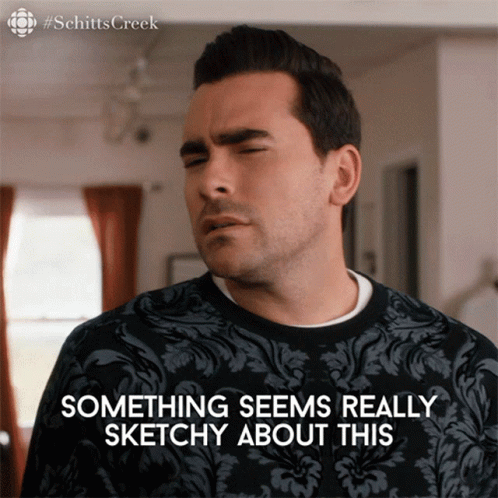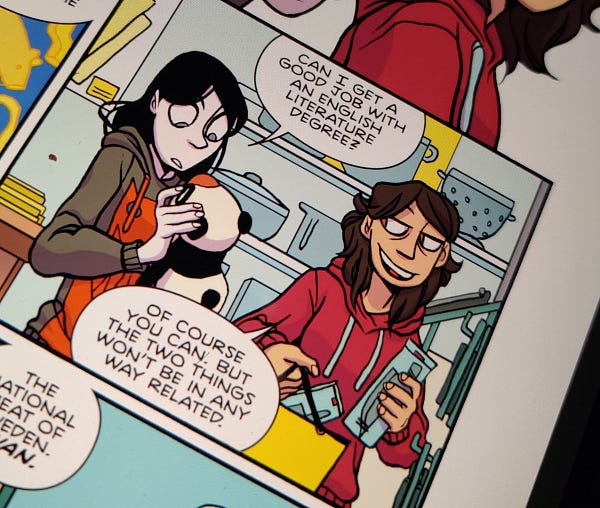Is it more expensive to be poor than rich?
How and why does life end up costing you more when you don't have the money for it all?
Hullo again! Here we are, ten days into 2023 already (when did that happen). I think a happy new year wish is a tad bit late, but I do hope for a good year for all of you — here's hoping 2023 is marked with good health, success, and love for us all. 💜
Thank you for continuing to read this newsletter, and if, for some reason, this is the end of the road for us (I know people like to clear out inboxes in Jan), then know that I'm grateful for all the time you've given my words and thoughts. 💌
As I’ve grown older, so has (thankfully) my income. Besides the Diderot Effect escape attempts, my increased income has given me the privilege and luxury to buy better quality stuff.
Although not immediately, I’ve begun noticing a difference in how being able to buy the good stuff has positively impacted me. For example (and this is a niche one), in 2020, I indulged in an expensive notebook that cost £25 (please note that I was earning in INR then and also had to pay ££ for shipping to India). Three years later, I’m still using that notebook and still love it as much as I did on the first day.
If I hadn’t had the cash to blow on that one notebook, I’d probably have gone through far shittier notebooks (both in quality and number) and wasted way more money than the initial £25.
In retrospect, it’s ridiculously clear that not being able to afford the good quality stuff almost always sets you back in more ways than one. So in the long run, it’s more expensive to be poor than it is to be rich.
If this still feels absurd to you, I’ll let Terry Pratchett explain (he does it better anyway):
Sam Vimes 'Boots' theory of socio-economic unfairness
“The reason that the rich were so rich, Vimes reasoned, was because they managed to spend less money. Take boots, for example. He earned thirty-eight dollars a month plus allowances. A really good pair of leather boots cost fifty dollars. But an affordable pair of boots, which were sort of okay for a season or two and then leaked like hell when the cardboard gave out, cost about ten dollars. Those were the kind of boots Vimes always bought, and wore until the soles were so thin that he could tell where he was in Ankh-Morpork on a foggy night by the feel of the cobbles.
But the thing was that good boots lasted for years and years. A man who could afford fifty dollars had a pair of boots that’d still be keeping his feet dry in ten years’ time, while a poor man who could only afford cheap boots would have spent a hundred dollars on boots in the same time and would still have wet feet.” — Men at Arms, a Discworld novel.
Simply put, the world is rigged to let the rich stay rich, while the poor dig themselves deeper into poverty.
I didn’t come across this Pratchett excerpt early on in my life. No, what I remember realizing was this instead — the goal was always to have enough money to be able to afford dental care. I’m not sure how old I was when I realized that people could die from having dental issues, but it certainly changed my world.
Ignoring a toothache or a cavity because it feels like it can wait, there are more pressing issues to be paid for anyway, can result in excruciating pain, paralysis, or even death. And still, dental isn’t covered in most countries’ mandatory health insurance plans. So you’ve got to pay extra to add that as a premium cost!

Other than losing money over the years, people who don’t have enough also pay with their youth, energy, and time. The last one’s the most critical resource we have — why do you think the rich outsource literally everything they can?
This is also where the “everyone has the same 24 hours” argument falls flat. To quote myself:
“We absolutely do not. Zuckerberg doesn’t have to decide what’s for lunch and then dinner as I do. He doesn’t have to invoice my clients and then chase payments.”
Now, as my income increases, theoretically, I could find a SaaS product that automates invoicing for me. I could eat out or order in, or if and when I reach that level, hire a cook. All this underscores the point that most people don’t have the luxury of doing what the rich do. In fact, life is distinctly on hard — not even normal or easy — mode for the poor.
Power imbalance across all transactions & interactions
Another way I look at this reality is by comparing the type of work I did when I started out vs what I’m doing now. At the start, like most people, I took on every possible gig under the sun. I wrote for incredibly shitty rates, rates I wouldn’t ever refer anyone on. I burnt myself out working on multiple projects, sometimes through sickness, other times through holidays.
Now, with some financial security, I’ve realized how to make things work in my favour. The #1 tip most freelancers give is to save up 6 months of expenses for the months you have no work or shitty work. Of course, another reason to have those savings is that it’s the ability to walk away.

Time and again, when I’ve rejected a project or quit working with someone because I felt I wasn’t being paid my worth, I’ve found better opportunities. But how do you walk away without money to keep the roof over your head or food on the table?
“…when you have less money the power relationship is flipped in nearly every financial interaction you have.”
[The poor are]…being nickeled and dimed to death.
“When bank fees are waived if you keep above a certain amount in your account, but they start charging for the account when the amount drops under the minimum.”
It’s wild when you realize this is the reality we’re living in and have somehow built ourselves. How did we get to a point where the rich (who absolutely don’t need it) get loans immediately, but people who need money to pay for critical life expenses are denied it? And yes, I understand the principle — the rich will pay it back; who’s to say the poor will?
Well, I’d like to point you in the direction of the billions of dollars the biggest companies, billionaires, and even governments owe one another. There’s not a single dollar or pound or rupee that’ll exchange hands — it’s all theoretical.
All this at the cost of letting world hunger, global poverty, and climate change continue to wreak havoc.
What did you think of this issue?
Your anonymous feedback helps me improve. Thanks!
If you liked this issue (or like the newsletter in general), feel free to buy me a coffee or two — or you can just share it somewhere!
Cool stuff I've found in the last two weeks! 🌟
2022 in 7 mins — that's a pretty accurate nutshell.
I haven't gotten around to listing my fav 2022 books yet (I read 55!!), but in the meantime, here are three cool sci-fi book recs (one of them is mine) over at
!Small habits that lead to big personal improvements over the course of one year (everyone and their mom is setting goals and habits now, so why not lean into it a bit?).
90-year-olds give advice to their 30-year-old selves (#9 is what I'm working towards).
Turns out I have no idea what humans look like (spot the fake face).
Have you guys watched Glass Onion yet? I watched it the night it came out, and I might like it more than Knives Out. This Reddit comment had me in splits right after.
Leaving you with this self-inflicted burn from one of my current reads:
I’ll see you next week — maybe not at the same time, but definitely the same place.




Simply loved this one. Fully agree! 💯
I think this may be your best yet, Nia, and I wish more people would talk honestly about just how much more expensive it is to be poor. Having money may not fix everything, but it sure simplifies an awful lot, and I think that's something most people with money fail to appreciate is true for most people without it. I'd like to think if more people made that realization we'd perhaps have a more just world, but perhaps that's misplaced optimism.